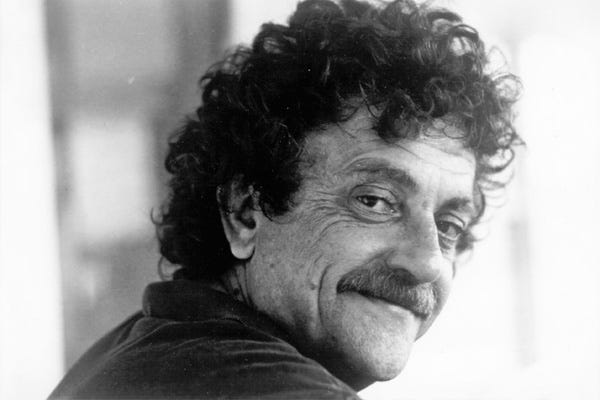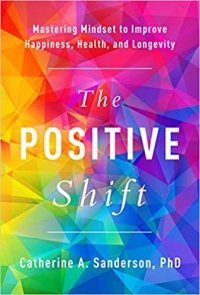Wait. . .
W H A T. . . ?
Is it too early to be
T H A N K F U L
too soon
to wish you a
H A P P Y
T H A N K S G I V I N G
15 days away. . .

Ohhhhhhhhhhhhhhhhhhhhhhhhh
To no one’s surprise,
Kurt Vonnegut is absolutely one of my favorite authors
and I just haven’t read all of his books and plays
I’ve re-read them several times
and each time I’m the better for it. . .
I always think about Kurt during this time of the year because of a poem of his that appeared in the New Yorker Magazine over 18 years ago on May 16, 2005.
This poem by Kurt Vonnegut is about his conversation with author Joseph Heller during a party hosted by a billionaire. When Vonnegut asks Heller how he feels knowing that this billionaire makes more money in a single day than Heller will ever earn from sales of his novel Catch-22, Heller responds that he has something that the billionaire will never have: the knowledge that he’s got enough.
This poem vividly illustrates what research corroborates: Happy people don’t need to engage in social comparisons. Instead, they practice gratitude for what they have—a good way to increase optimism and well-being.
While people vary considerably in how much they engage in social comparison, those of us with a more negative mindset find it hard to avoid, particularly on social media. Most people post only the good parts of their lives—successful kids, fabulous vacations, impressive careers—which can lead us to believe that our own lives don’t measure up.
This may be why college students believe that they experience more negative events (e.g., bad grades) and fewer positive events (e.g., fun parties) than their peers, which makes them lonely and dissatisfied with life. In contrast, college students encouraged to practice gratitude by counting their blessings tend to be happier than their peers.
Wait. . .
Is it true that being grateful can actually make you happier?

W E L L :
People who keep a
GRATITUDE JOURNAL
are 25% HAPPIER
and who doesn’t
E V E R
want to be 25% HAPPIER?

The benefits are clear:
R E S E A R C H
shows that having an
attitude of gratitude
actually changes the molecular structure of the brain, keeps gray matter functioning, and actually makes us happier and healthier. When you feel happiness, the central nervous system is affected. Your are more peaceful, less reactive and less resistant.
(UCLA Mindful Awareness Research Center, 2008 Gratitude Study)

P L U S
The act of gratitude journaling,
of writing down what you are grateful for–
has been associated with enhanced optimism, life satisfaction, and decreased negative outlook.
(Journal of School Psychology, April 2008)
Ohhhhh, Yeah,
The Poem:
Joe Heller
True story, Word of Honor:
Joseph Heller, an important and funny writer
now dead,
and I were at a party given by a billionaire
on Shelter Island.
I said, “Joe, how does it make you feel
to know that our host only yesterday
may have made more money
than your novel ‘Catch-22’
has earned in its entire history?”
And Joe said, “I’ve got something he can never have.”
And I said, “What on earth could that be, Joe?”
And Joe said, “The knowledge that I’ve got enough.”
Not bad! Rest in peace!”
— Kurt Vonnegut
The New Yorker, May 16th, 2005

SO. . .
ARE YOU GRATEFUL
is the new way to ask
ARE YOU HAPPY
which is why
especially
W H Y
I’m wishing you a truly
HAPPY
THANKSGIVING
some 15 days before everyone else will
(Turkey, Dressing and Pumpkin Pie are optional but like Happiness or Gratefulness–WHY WAIT?)

Grateful for the reminder that I have enough! Maybe this year instead of putting the pressure on our guests to state what they are grateful for I will suggest that since we are together, we all have “enough”!
Most of what I ever write, blog, preach, share…I NEED FOR MYSELF as much as anyone who might read and hear what I share…I, too, am severely grateful for having Enough! Thank you, as always, for your kind words and insightful thoughts